Plot summary
Jase (Jason Mason) works as a lagger, one of a gang of labourers considered "too dumb to draft" into the army and thus conscripted into labour on public works. His group has the task of connecting a new nuclear power station to the grid in the Highlands of Scotland, which have become colder and sparsely inhabited due to climate-change. This takes place against the backdrop of a long-running war between China and the West, which started due to an air-rage incident when a Chinese businessman, under stress due to a smoking-ban, got mistaken for a terrorist.
Jase and his fellow laggers encounter a hitchhiker named Ailiss, whom Jase identifies as one of a group of New Age Settlers (also known as crusties or bandits), people who foresee the imminent end of modern society and who have retreated to a semi-hidden rural commune. However, their presence worries the authorities, who become concerned about the security of their nuclear-power station.
Believing that they have inadvertently set the settlers up for arrest or worse, three laggers travel to the commune to warn them. Discovering the commune under attack, they accidentally defeat the government forces by allowing their truck to crash into and destroy a helicopter. Jase finds himself acclaimed a hero by the settlers, and decides to join them.
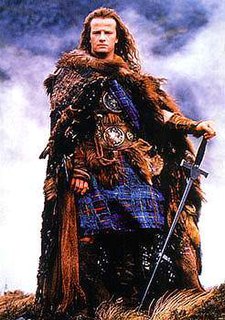
Highlander is a British film and television franchise created by American screenwriter Gregory Widen. The series began with a 1986 fantasy film starring Christopher Lambert, who played Connor MacLeod, the titular Highlander. Born in Glenfinnan in the Scottish Highlands in the 16th century, MacLeod is one of a number of immortals empowered by an energy called the Quickening and only able to die if beheaded. On television, Highlander: The Series aired for six seasons from 1992–1998, starring Adrian Paul as Connor's kinsman Duncan MacLeod, another immortal Highlander born decades later. Recurring characters in the series included the immortal thief Amanda and oldest immortal Methos who each had spin-off shows, Highlander: The Raven and The Methos Chronicles respectively, which each lasted one season.
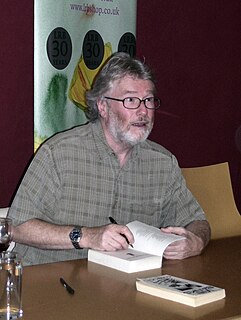
Iain Banks was a Scottish author, writing mainstream fiction as Iain Banks and science fiction as Iain M. Banks, adding the initial of his adopted middle name Menzies. After the success of The Wasp Factory (1984), he began to write full time. His first science fiction book, Consider Phlebas, appeared in 1987, marking the start of the Culture series. His books have been adapted for theatre, radio and television. In 2008, The Times named Banks in their list of "The 50 greatest British writers since 1945". In April 2013, Banks announced he had inoperable cancer and was unlikely to live beyond a year. He died on 9 June 2013.
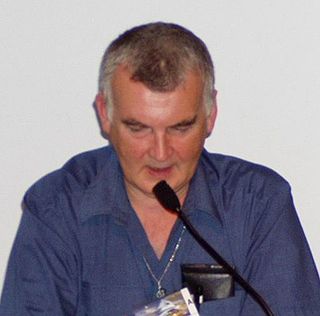
Kenneth Macrae MacLeod is a Scottish science fiction writer. His novels The Sky Road and The Night Sessions won the BSFA Award. MacLeod's novels have been nominated for the Arthur C. Clarke, Hugo, Nebula, Locus, and Campbell Memorial awards for best novel on multiple occasions. A techno-utopianist, MacLeod's work makes frequent use of libertarian socialist themes; he is a three-time winner of the libertarian Prometheus Award. Prior to becoming a novelist, MacLeod studied biology and worked as a computer programmer. He sits on the advisory board of the Edinburgh Science Festival.
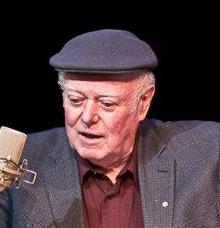
Alistair MacLeod, was a Canadian novelist, short story writer and academic. His powerful and moving stories vividly evoke the beauty of Cape Breton Island's rugged landscape and the resilient character of many of its inhabitants, the descendants of Scottish immigrants, who are haunted by ancestral memories and who struggle to reconcile the past and the present. MacLeod has been praised for his verbal precision, his lyric intensity and his use of simple, direct language that seems rooted in an oral tradition.

The China Syndrome is a 1979 American disaster thriller film directed by James Bridges and written by Bridges, Mike Gray, and T. S. Cook. The film stars Jane Fonda, Jack Lemmon, Michael Douglas, Scott Brady, James Hampton, Peter Donat, Richard Herd, and Wilford Brimley. It follows a television reporter and her cameraman who discover safety coverups at a nuclear power plant. "China syndrome" is a fanciful term that describes a fictional result of a nuclear meltdown, where reactor components melt through their containment structures and into the underlying earth, "all the way to China".
Brian David Henderson Wilson is a former Scottish Labour Party politician. He was Member of Parliament for Cunninghame North from 1987 until 2005 and served as a Minister of State from 1997 to 2003.

Eigg is one of the Small Isles in the Scottish Inner Hebrides. It lies to the south of the Isle of Skye and to the north of the Ardnamurchan peninsula. Eigg is 9 kilometres long from north to south, and 5 km (3 mi) east to west. With an area of 12 sq mi (31 km2), it is the second-largest of the Small Isles after Rùm. Eigg generates virtually all of its electricity using renewable energy.

Stornoway is the main town of the Western Isles and the capital of Lewis and Harris in Scotland.
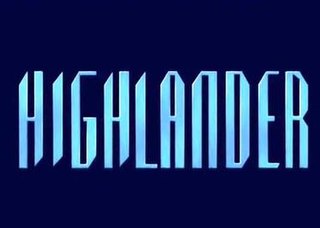
Highlander: The Series is a science fantasy action-adventure television series featuring Duncan MacLeod of the Scottish Clan MacLeod, as the eponymous "Highlander". It was co-produced by Rysher Distribution in the United States, Gaumont Television in France, Reteitalia in Italy, RTL Plus in Germany, and Amuse Video in Japan. An alternate sequel to the 1986 feature film Highlander, it features a storyline in which the protagonist of that film has not won "the Prize" sought by all Immortals, who still exist post-1985. Christopher Lambert reprised his role as Connor in the pilot episode, which introduced series protagonist Duncan MacLeod, an Immortal who was taken in by the same clan of Scottish Highlanders who had found and raised Connor generations before.

Connor MacLeod, also known as The Highlander, is a fictional character in the Highlander film series, and appears in the extended franchise of the television programs: Highlander: The Series and Highlander: The Animated Series. In the films and live-action series, he is portrayed by Christopher Lambert. In the animated series, he is voiced by Lorne Kennedy.
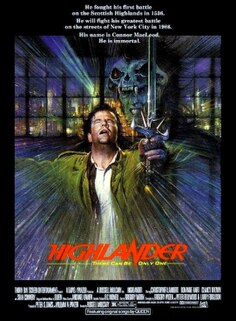
Highlander is a 1986 British fantasy action-adventure film directed by Russell Mulcahy and based on a story by Gregory Widen. It stars Christopher Lambert, Roxanne Hart, Clancy Brown, and Sean Connery. The film chronicles the climax of an age-old war between immortal warriors, depicted through interwoven past and present-day storylines.
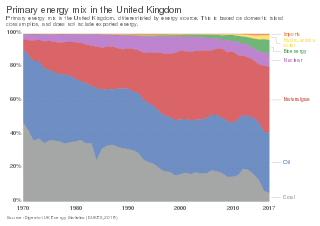
The energy policy of the United Kingdom has achieved success in reducing energy intensity, reducing energy poverty, and maintaining energy supply reliability to date. The United Kingdom has an ambitious goal to reduce carbon dioxide emissions for future years, but it is unclear whether the programs in place are sufficient to achieve this objective. Regarding energy self sufficiency, the United Kingdom policy does not address this issue, other than to concede historic energy self sufficiency is currently ceasing to exist. With regard to transport, the United Kingdom historically has a good policy record encouraging public transport links with cities, despite encountering problems with high speed trains, which have the potential to reduce dramatically domestic and short-haul European flights. The policy does not, however, significantly encourage hybrid vehicle use or ethanol fuel use, options which represent viable short term means to moderate rising transport fuel consumption. Regarding renewable energy, the United Kingdom has goals for wind and tidal energy. The White Paper on Energy, 2007, set the target that 20% of the UK's energy must come from renewable sources by 2020.

Learning the World is a science fiction novel by British writer Ken MacLeod, published in 2005. It won the 2006 Prometheus Award, was nominated for the Hugo, Locus, Clarke, and Campbell Awards that same year, and received a BSFA nomination in 2005. Since the book's publication MacLeod has written two short stories set in the same universe, "Lighting Out" and "Who's Afraid of Wolf 359?".

Castle Leod is the seat of the Clan Mackenzie. It is a category A listed building, and the grounds are listed in the Inventory of Gardens and Designed Landscapes of Scotland, the national listing of significant gardens. It is located near Strathpeffer in the east of Ross-shire in the Scottish Highlands.

Sustainable development in Scotland has a number of distinct strands. The idea of sustainable development was used by the Brundtland Commission which defined it as development that "meets the needs of the present without compromising the ability of future generations to meet their own needs." At the 2005 World Summit it was noted that this requires the reconciliation of environmental, social and economic demands - the "three pillars" of sustainability. These general aims are being addressed in a diversity of ways by the public, private, voluntary and community sectors in Scotland.
Energy policy in Scotland is a matter that has been specifically reserved to the UK parliament under the terms of the Scotland Act 1998 that created the devolved Scottish Parliament. However, since planning is a matter that has been devolved, the Scottish government has the ability to shape the direction of energy generation in Scotland by approving or refusing new projects.

Altario is a hamlet in east-central Alberta, Canada within Special Area No. 4. It is located on Highway 899 just north of Highway 12, approximately 12 kilometres (7.5 mi) east of Kirriemuir and 14 kilometres (8.7 mi) west of Compeer.

The Restoration Game is a 2010 science fiction/techno-thriller novel by Ken MacLeod.
The Independent Highland Companies were irregular militia raised from the Scottish clans of the Scottish Highlands by order of the Government between 1603 and 1760 in order to help keep the peace and enforce the law in the Highlands and were recognized as such by the Government. The officers of the Independent Highland Companies were commissioned as officers of the British Army but the Independent Companies were not recognized as official regiments of the line of the army. The Independent Highland Companies were the progenitors of the Highland Regiments of the British Army that began when ten Independent Highland Companies were embodied to form the Earl of Crawford's Highland Regiment that was numbered the 43rd Regiment of Foot in 1739.

The Ship of the People is a moniker given to the Irish ship William, which played a key role in a Scottish human trafficking scandal in 1739, when over a hundred men, women and children were kidnapped from the Hebrides with the intention of selling them as indentured servants in The Thirteen Colonies. The scheme was devised by Norman MacLeod of MacLeod, chief of Clan MacLeod, who was in deep debt at the time, and Sir Alexander MacDonald, chief of Clan MacDonald of Sleat, and was carried out by tacksman Norman MacLeod of Unish and skipper William Davidson. En route to America, a landing in Ireland was made, where several victims attempted to escape, alerting local authorities and attracting the attention of the British government. MacLeod and MacDonald successfully denied involvement in the incident and escaped prosecution, while the victims of the scheme were set free and mainly settled in Ireland for the remainder of the lives.
















